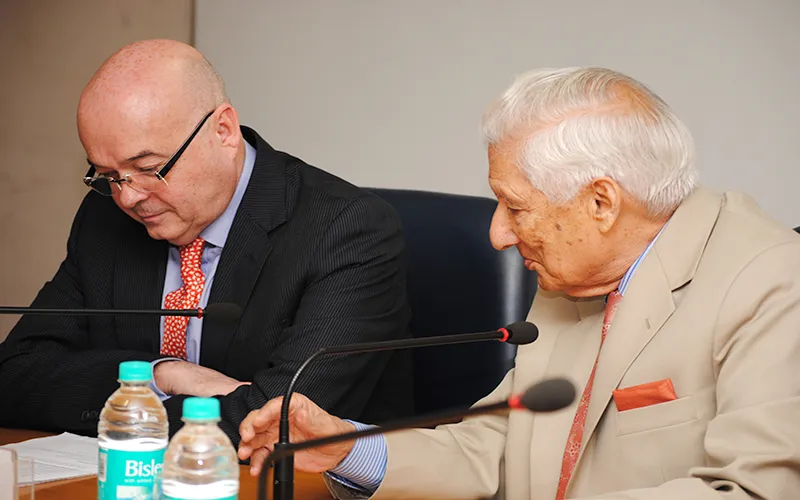Bangladesh have witnessed changes in the last eight years, but they were not enough, according to speakers at a conference on India's relationship with Bangladesh.

Observer Research Foundation recently hosted a discussion on the situation in Bangladesh and its relationship with India. The discussion was initiated by the British High Commissioner to Bangladesh, Mr. Robert Gibson and was chaired by Amb M. Rasgotra.
While the discussion was focused on developing India’s relationship with Bangladesh, concerns regarding the politico-economic conditions in Bangladesh, at present and in the last 8 years, were also brought out. Though Bangladesh has witnessed some changes in the said period, there is a feeling that these changes are not enough.
Bangladesh’s relations with India dominate their press and political commentaries. While the relations between the two countries were at a low point in 2004, a lot of improvements have taken place in the last eight years. However, there is a feeling that a lot more could have been done. The reason for the lack of further improvements has been attributed to the failure of the Teesta water agreement, which has definitely been a sour point for Bangladesh; often being used as a stick by the opposition for its government-bashing. At the same time, it was pointed out that the practical gains of the agreement, when it is finalised, would be disproportionate to its coverage in national politics and nationalist media.
India, on the other hand, has a much more mature and pragmatic understanding of its relationship with Bangladesh. There is a feeling that India sees Bangladesh in a much more positive light and seeks to further her relationship with it; without an expectation of getting much in return, which is contrary to the perception in Bangladesh.
There were also discussions on the political situation in Bangladesh, the elections which will be due in 18 months and on the armed forces. The discussants felt that there is an uneasy comfort that persists between the Army and the Government given the history that they share. The group was also made aware of the fact that Bangladesh has been trying to professionalise its army and carry out outreach programmes to sensitise personnel against smuggling and drug trafficking.
Another big cause of concern regarding the security forces was the ’atrocities’ of the Rapid Action Battalion trained by the British. The participants stressed on the need for zero-tolerance for human rights abuse.
Concerns were also raised regarding the status of fundamentalism in Bangladesh. While fundamentalism was a serious problem in 2004, the government has made significant progress against it. Thus, the perception is that even if it exists, it is not visible and deeply hidden. It was pointed out that in Bangladeshi society Islam does not play as important a role in day-to-day life.
The economy of Bangladesh was also discussed. The economic growth has been averaging just over 5 per cent recently, though the year is expected to see a growth rate of 6 per cent. Participants said Bangladesh required a growth rate of around 7 per cent to make significant progress. Inflation has been a significant concern, with food inflation around 14 per cent adversely affecting the poor. Bangladesh has been extended funds from the IMF, but there is a certain scepticism regarding their ability to fulfil the repayment obligation, considering their poor record.
There was concern over the investment scenario. Speakers were critical of the duplicitous stance taken by the country in this regard. There seems to be a strong sentiment against foreign investments, quite contrary to the official position.
Some speakers criticised India’s apparent apathy towards Bangladeshi concerns regarding climate change.
(This report is prepared by Arvind John, Research Intern at Observer Research Foundation)
The views expressed above belong to the author(s). ORF research and analyses now available on Telegram! Click here to access our curated content — blogs, longforms and interviews.




 PREV
PREV

